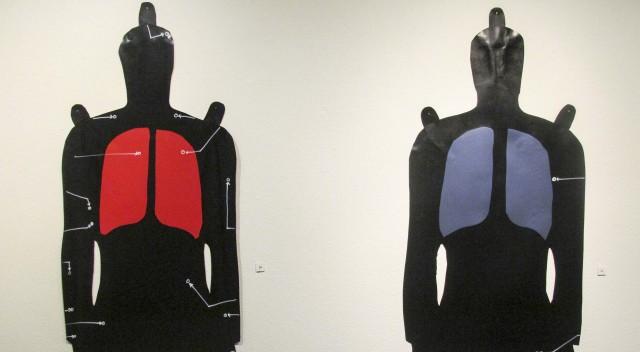By Rachel Polak/reporter
Students need three things to survive and thrive not only their first semester but throughout their college careers, a NW success coach said Feb. 10.
Liz Bradley’s presentation offered insight to becoming the best student possible.
“Even if this isn’t your first time in college, you’ll use these helpful tips for the rest of your time in college,” she said.
The three requirements are tools, skills and habits. Bradley defined tools as anything to help in accomplishing a task. Skills are the ability, knowledge and aptitude to accomplish a task. Habits are the repeating of a task until it becomes involuntary.
Bradley said students need to know only five tools. First, they should meet with their professors. Students can find their office locations and hours on Blackboard and ask why they didn’t pass that test and how they could do better. Some professors might suggest taking advantage of the next tool, learning centers.
“If there’s any class you are having trouble with, there’s probably a learning center for it,” she said.
Learning centers are available on each campus with professors, tutors and peers to help. Also available is career services, where students can get help starting on a plan, researching degrees and acting on the future. The next tool, or person, Bradley said students need to know is their academic advisor. Advisors help with course issues such as deciding on a major.
The last tool, she said, is getting involved on campus. Studies show those who are involved get better grades because they focus on school more since they are doing something they like.
Getting involved also leads to the first skill — networking, getting to know other students. It helps when students miss a class or need help on an assignment because they can call or text a fellow student.
The next few skills go together, Bradley said.
“Balance your social and academic life,” she said. “Don’t always study.”
Bradley encouraged students to have fun but learn how to become an expert on the class and know the class requirements and due dates.
The last skill is learning to budget money.
“During college, you’re at your poorest,” she said.
Budgeting can be hard during college, but students can seek professional help if needed, Bradley said.
Each campus has numerous aids for many areas: counselors, tutors and success coaches ready to help students in forming healthy habits.
Bradley listed nine healthy habits to help students survive and thrive in college. Even though they seem simple, she said it takes a full 28 days for a habit to completely form.
First, students need to get organized, use an app, buy a calendar, find something that helps and use it. Next, they need to find a special place to study. Each person is different. Some like quiet, and some enjoy background noise.
Associated with studying, another habit is to disconnect. Students should get off the phone and tablets unless necessary for studying, Bradley said. Disconnecting keeps students more focused on one thing rather than many.
Bradley shared a secret about the next habit: going to class. Most professors are more willing to help a student on the verge of an A and B if they attend and participate in class regularly, she said.
Another habit would be to strive for good grades. It only takes a 2.0 to stay off academic probation, but a good habit would be to want and achieve better than that, Bradley said.
The last few habits concerned bettering oneself: Learning to make and schedule time for oneself, admitting a mistake and moving on, prioritizing life to put oneself first and organize needs accordingly, and staying healthy.
As many college students know well, sleep sometimes comes last, Bradley said. Eating the right foods and exercising 30 minutes a day can maintain health.


















![Untitled [House], Barry Anderson](https://collegian.tccd.edu/wp-content/uploads/2016/02/House-640x480.jpg)

